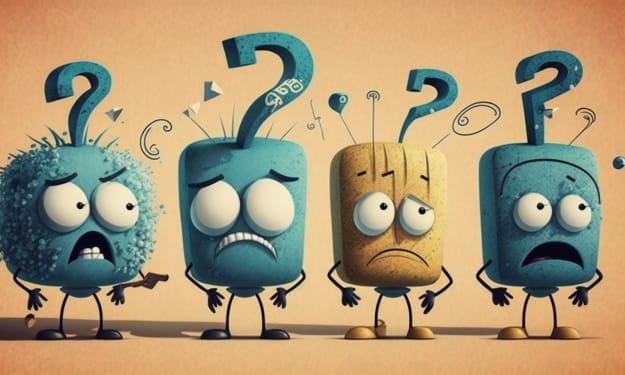Is AI a Threat to Humanity?
Or just Hype?

Learn more about AI here.
AI and Humanity
The development of Artificial Intelligence (AI) has been a topic of discussion and debate for years. While some people view AI as a great asset to humanity, others believe that it poses a significant threat to our existence. The reality is that AI technology has advanced significantly in recent decades, and it's important to consider the potential risks associated with this kind of technology.
One major concern regarding AI is its ability to replace human workers in various industries. With the rapid advancement of automation and machine learning technologies, many jobs that were previously done by humans may soon be replaced by machines. This could lead to mass unemployment and economic instability, particularly for those who lack the skills needed to work in an increasingly digital world.
Another major worry is the potential misuse of AI for malicious purposes. As we progress towards greater technological advancements, there are concerns about how powerful entities might use this technology against humanity. For example, it raises questions about privacy breaches, data manipulation, or autonomous weapons where decisions are taken without human intervention ultimately putting at risk human life itself.
In conclusion, while AI undoubtedly offers many benefits to society such as improved efficiency or new medical treatments - its application also carries risks that we must be aware of if we want to create a better future between man and machine or avoid unintended consequences. Therefore more investment should go into understanding these potential threats so we can develop solutions before they materialize into catastrophic scenarios firsthand.
What is AI?
Artificial Intelligence or AI refers to the simulation of human intelligence in machines that are programmed to think and act like humans. It involves the development of algorithms that enable computers to perform tasks, such as decision-making, speech recognition, language translation, visual perception, and many others.
While AI has brought significant advancements in various fields such as healthcare, transportation, finance, and education among others, it has also raised concerns about its potential threat to humanity. Some experts argue that as AI systems become more advanced and complex in their decision-making abilities they could pose a risk if not designed with proper ethical considerations.
The fear is that AI systems may be developed with biased algorithms leading to decisions that perpetuate inequality and discrimination. Moreover, if these systems were hacked or controlled by malicious actors then they could cause widespread damage or even harm human beings. Therefore society needs to continue monitoring the development of AI technology while ensuring appropriate measures are taken to mitigate any potential harm it may cause.
Impact on Jobs
The introduction of artificial intelligence (AI) has brought about concerns that machines will eventually replace human workers. While it is true that AI can automate certain tasks and make them more efficient, it does not necessarily mean that it will eliminate jobs. Instead, AI has the potential to transform industries and create new job opportunities.
For instance, the healthcare industry can benefit greatly from AI technology by using machine learning algorithms to analyze patient data and improve medical diagnoses. Similarly, the manufacturing industry can use robots to perform repetitive tasks while humans oversee the process and provide maintenance for these machines.
However, there is no denying that some jobs may become obsolete due to advances in AI technology. This means that workers in affected fields may need to learn new skills or transition into different roles altogether. Nonetheless, with proper planning and investment in education and training programs, society can adapt to these changes and ensure a smooth transition into a future where humans work alongside machines rather than against them.
Ethical Concerns
One of the most pressing ethical concerns regarding AI is the potential for it to be used for harmful purposes. As AI technology continues to develop and become more advanced, there is a risk that it could be used to create autonomous weapons or other dangerous tools. Additionally, there is concern about the use of AI in surveillance and control systems, which could lead to violations of privacy and human rights.
Another ethical issue related to AI is its impact on employment. As more jobs become automated through the use of AI, there is a risk that many people will be left without work or with fewer job opportunities. This could lead to social inequality and economic disruption if not handled properly.
Lastly, there are concerns about bias in AI algorithms. If the data used to train these systems contains biases or reflects existing inequalities in society, then the resulting algorithms may perpetuate these biases when making decisions. This could have significant negative consequences for marginalized groups who are already disadvantaged by societal structures.
How to Manage AI?
As AI technology continues to advance, concerns about its potential impact on humanity have grown. The idea of an intelligent machine that can learn and make decisions on its own raises questions about how such a system should be managed. One approach to managing AI is to create ethical guidelines that dictate how the technology should be developed and used.
Organizations like Google and Microsoft have already created their ethical codes for AI development, which include principles like transparency, accountability, and non-discrimination. Another way to manage AI is through regulation. Governments around the world are beginning to consider legislation that would require companies using AI to adhere to certain rules.
Ultimately, the key to managing AI is striking a balance between innovation and responsibility. While we want these systems to continue advancing to solve complex problems and improve our lives, we also need clear guidelines in place that ensure they're developed in a safe, responsible manner that doesn't put people at risk. As long as we keep this balance in mind as we move forward with AI development, there's no reason why this powerful technology can't be harnessed for good while minimizing any potential risks or negative impacts it may pose.
Benefits of AI
Despite concerns about the potential threat of AI to humanity, there are numerous benefits to this technology. One major benefit is its ability to improve efficiency and productivity across various industries. In fields such as healthcare, AI can assist with diagnosis and treatment plans, while in manufacturing, it can optimize production processes and reduce waste. Additionally, AI-powered customer service chatbots have streamlined interactions between businesses and their customers.
AI also has the potential to revolutionize scientific research by analyzing vast amounts of data in a fraction of the time it would take human researchers. This could lead to new medical breakthroughs or advancements in fields like climate science.
Another benefit of AI is its ability to provide personalized experiences for consumers. Machine learning algorithms can analyze user behavior patterns and preferences to tailor recommendations or advertisements specifically for each individual. This creates a more enjoyable experience for users while also increasing revenue for businesses.
Overall, while it is important to address ethical concerns surrounding the development and implementation of AI technology, it is equally important not to overlook its many benefits that have already begun transforming various aspects of our lives.
Conclusion: Future of AI and Humanity
In conclusion, the future of AI and humanity is a topic that raises many questions and concerns. While the development of artificial intelligence has brought about significant advancements in various fields, it also poses potential threats to human existence. One major concern is the possibility of superintelligent machines surpassing human intelligence and taking over control.
However, it is important to note that there are existing measures in place to ensure AI remains aligned with human values and principles. Ethical guidelines are being developed to regulate the use of AI technology and prevent any harmful consequences. Additionally, research is ongoing on how best we can integrate AI into society without causing harm.
While there may be some risks associated with AI technology, it presents numerous opportunities for improving our quality of life across different sectors such as healthcare, education, and transportation among others. The key lies in ensuring responsible usage by humans through collaboration between policymakers, researchers, and industry stakeholders to advance beneficial uses while minimizing negative impacts on humanity.
Learn all about AI here.
About the Creator
Patrick Dihr
I'm a AI enthusiast and interested in all that the future might bring. But I am definitely not blindly relying on AI and that's why I also ask critical questions. The earlier I use the tools the better I am prepared for what is comming.






Comments
There are no comments for this story
Be the first to respond and start the conversation.